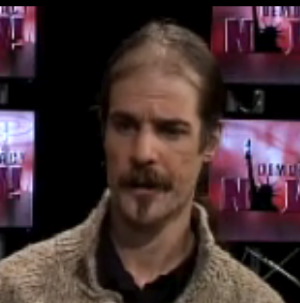 Pittsburgh hosted G20 summit last month (September 22-25), which was marred by protests and the controversial way in which authorities went about suppressing dissent through Twitter.
Pittsburgh hosted G20 summit last month (September 22-25), which was marred by protests and the controversial way in which authorities went about suppressing dissent through Twitter.
Activist Elliot Madison who works with People's Law Collective, his home was raided by authorities, he and another man were accused of
” using Twitter to direct the movements of G20 protesters and update them about movements of police in Pittsburgh.”
Elieen Clancy at I-Witness Video questions the government's decision to take tweeting as a potential criminal activity, whereas the State Department supported twitter supported people's uprising in Iran
“2009 is the year when Twitter and other social networking tools have emerged to have a major impact in social movements in Burma, Moldova and Iran. It is difficult to understand the justification for the raids in Pittsburgh and Queens considering the applause in the press for Twitter's use as a tool to undermine authoritarian governments around the world. Twitter was the best source for instant news from the streets during the protests about the Iranian elections, with raw, impossible-to-verify-in-the-moment Tweets appearing on the websites of the New York Times, the Atlantic and Huffington Post.”
It is important to note here that last year Army's intelligence came out with a report which says that Twitter could be used by terrorists to communicate about attacks.Noah Shachtman wrote about the report and its findings at Wired.com.
Unfortunately the government's attitude towards potential misuse of Twitter was not analyzed in depth by the major news networks. Here is Pennsylvania ACLU’s legal director, Vic Walczak on CNN talking about the “intimidation” of those who protested G20 summit through Twitter.
Bill Quigley,Legal Director of the Center for Constitutional Rights in New York describes the suppression of G20 protests as right to dissent under siege and says that the environment surrounding protests is different compared to the days before 9/11
“There are three main reasons that protesting is more difficult since 9/11. First, there is political advantage to keep fanning the fires of fear and insecurity and suggesting to the public that violence could well be a part of protests even though over 99% of protests and protestors since 9/11 have been completely non-violent (except for the right-wing gun toting folks at the healthcare forums — can you imagine if African American protestors did that?) Second, government has poured billions into law enforcement with the result that their response to protests are in many cases no longer civil law enforcement but now quasi-military, a chance to both show off their new toys, and an opportunity for security forces to practice their mass response actions. Third, federal forces have taken over the leadership for security at any large protest so that local and state law enforcement have less and less to say in how the event is managed.”




1 comment